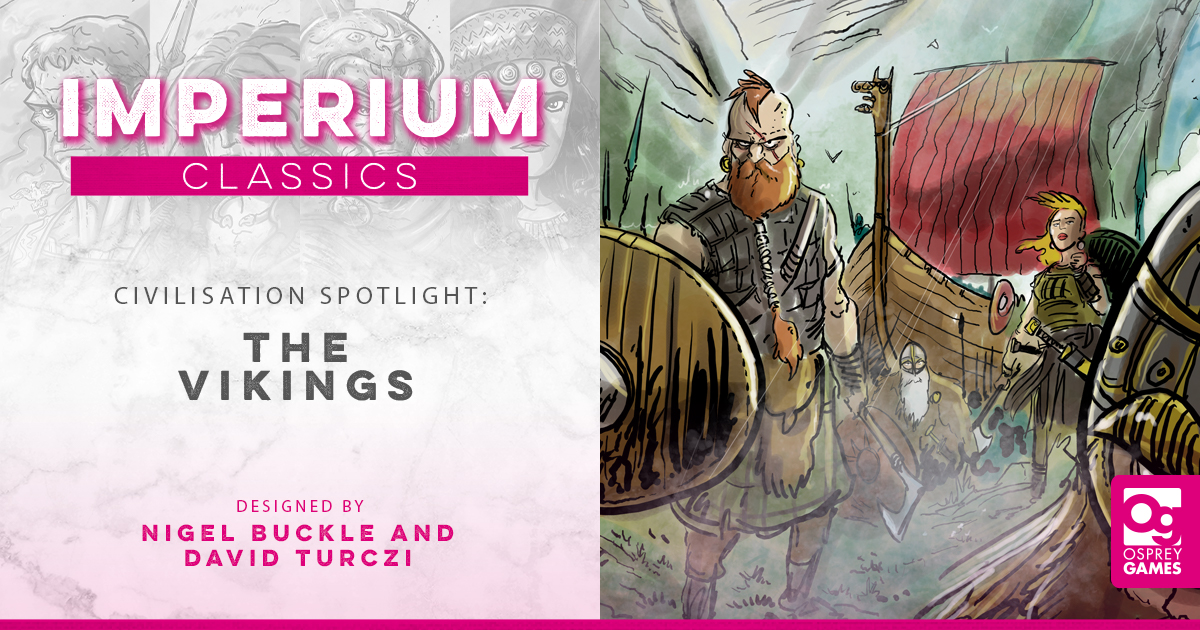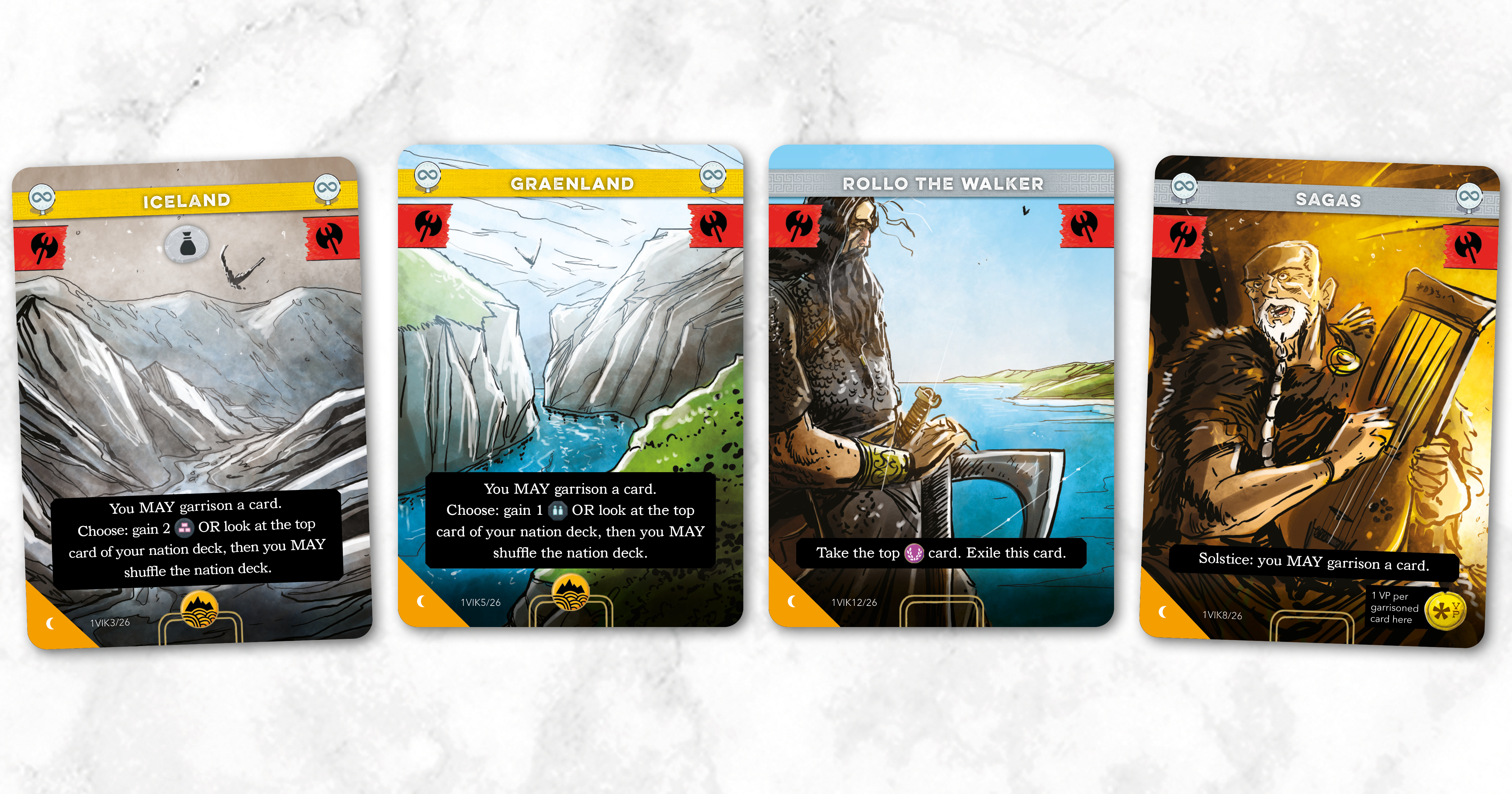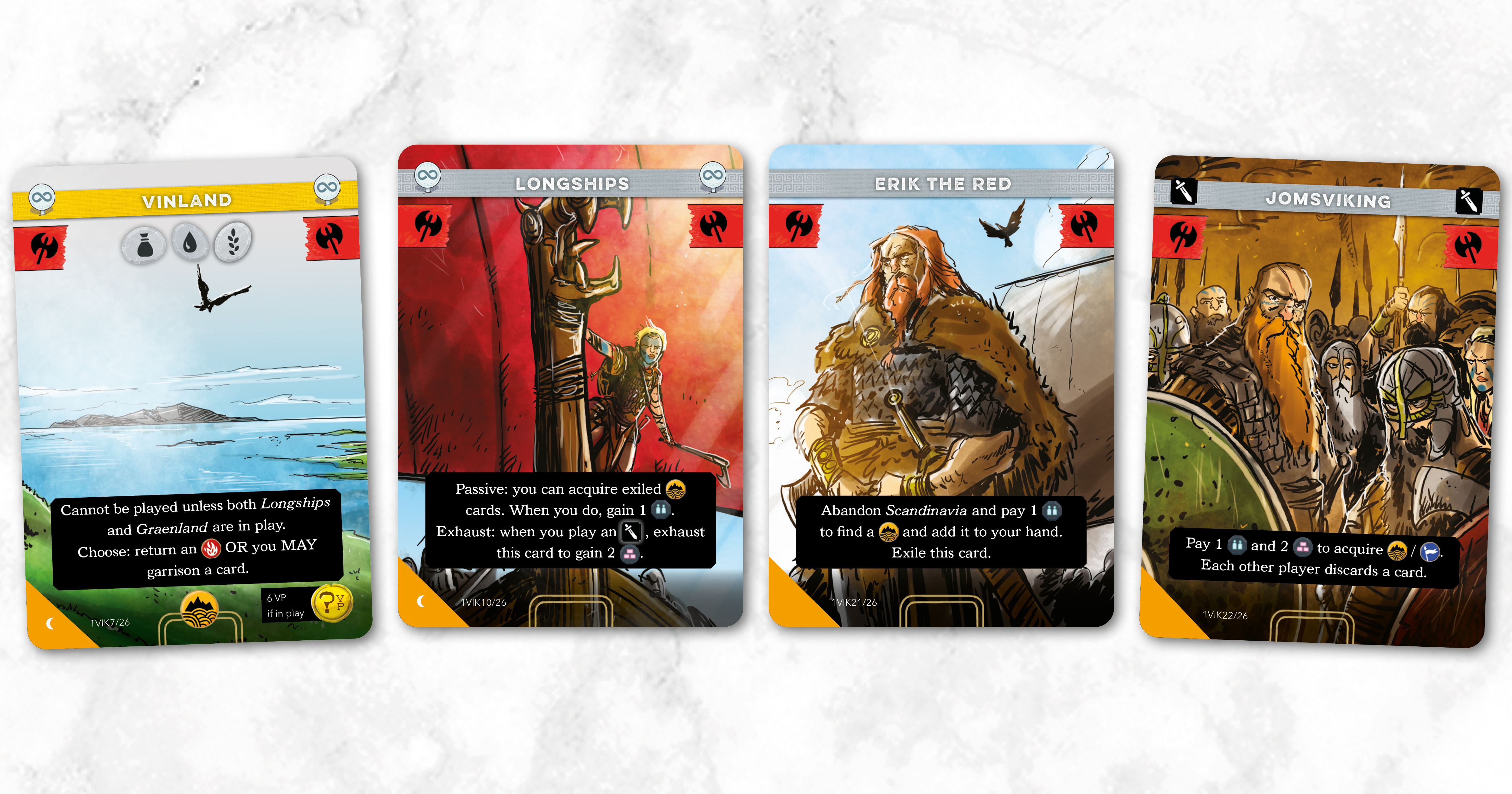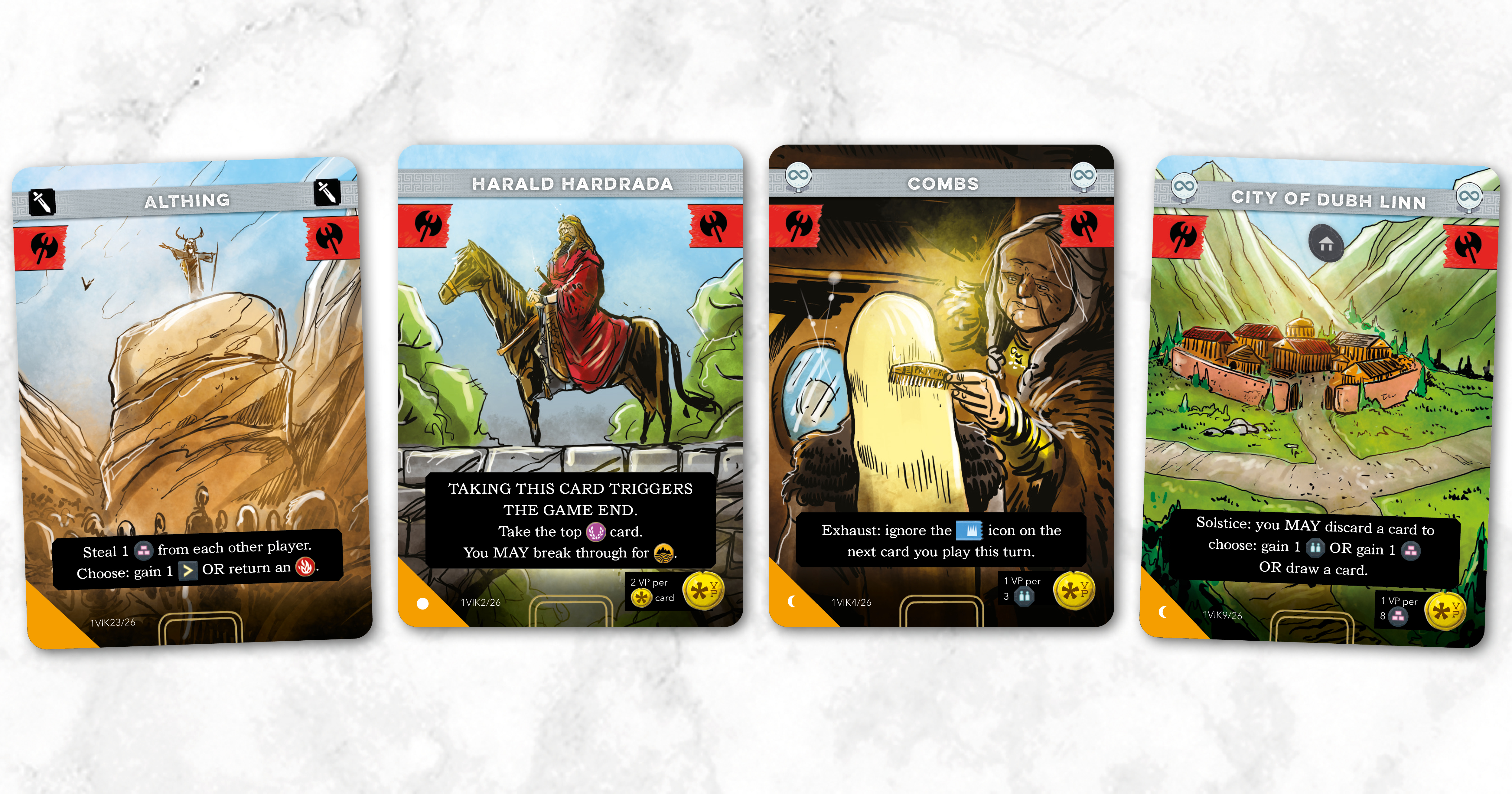In May we’re releasing Imperium: Classics and Imperium: Legends, two standalone deck-building civilisation games designed by Nigel Buckle and Dávid Turczi.
Today on the blog we’re looking at the Vikings, by which we mean the seafaring Norse from present day Norway, Denmark, and Sweden. This covers the period from the first recorded raids in 793 CE to 1066 CE, making them the most recent civilisation that the game portrays.

In some ways the Vikings are the other side of the Atlantean coin (who we covered in the last blog). While the Atlanteans start as an empire, the Vikings never become an empire. Like the Atlanteans, however, they have no history pile – the Vikings were never a cohesive empire with a written legacy.
Not having a history pile means your one-use cards (such as leaders like Rollo the Walker) are exiled rather than put into history, but it does mean powerful Fame cards that usually are put into history, you instead discard (and reuse!). For example, the Fame card Glorious is one of the best ways you can accelerate your deck and become an unstoppable horde. If you want to remove cards from your deck, you’ll need to garrison them in regions, or put them under your Sagas card – the verbal history of the Vikings.
Never becoming an empire means no you have no development cards, and no need to gather resources to pay for them. The downside to this is that when playing as the Vikings, you have to react to the cards you gain from the nation deck each cycle for the entire game, rather than be able to plan your deck development strategically.
There is some mitigation to this lack of control. Your power card provides the ability to look at the top card of your nation deck and either return it or put it on the bottom (above your zenith card) every time you take unrest. This scouting ability is repeated on other cards in the deck, such as Iceland and Graenland.

There are strategies within the nation deck you may wish to search for – for example, the Viking expedition to Vinland (North America). To reach Vinland (by putting it into play), you first have to draw it from your nation deck, and also have drawn and played Graenland and Longships. That’s a lot of cards to find in your nation deck, so you may find the Viking explorer Erik the Red helpful in this endeavour.
Jomsviking is your equivalent of the conquer card in other civilisations’ decks. They were ferocious Viking mercenaries, so their card requires you pay both population and materials to use them. On top of that, unlike those other civilisations, you don’t have the choice to break through for the card you’re looking for, meaning that you’re stuck accumulating unrest whenever you play it. The card instead doubles as an attack card, forcing your opponents to discard a card whenever you play it. Combined with your other starting attack card, Althing, the Vikings tend to adopt a fairly aggressive playstyle.

When you draw your last card in your nation deck, Harald Hardrada (the Norse king who almost became king of England), you trigger the end of the game immediately. That means that unless you’ve managed to optimise your deck down to a few cards, you might never get to play him! By that point, you’ll need to have acquired plenty of cards from the market, as without your personal pool of development cards, you don’t have access to the steady stream of victory points other civilisations have. Counterbalancing that growth with your regions and cards such as Sagas will determine how effectively you can cycle through your deck.
Hopefully this spotlight has shown you that the Vikings are less straightforward to play than most of the civilisations in Imperium: Classics. In our estimations, only the Greeks are more complicated in that box, with the Vikings scoring a difficulty rating of 3 out of 5. But if you can get rolling, the world will hear your roar, and you your opponents will tremble before you.
Read more about Imperium on our other spotlight blogs:
The Carthaginians
The Egyptians
The Persians
The Mauryans
The Celts
The Qin Dynasty
The Romans
The Macedonians
The Minoans
The Olmecs
The Scythians
The Atlanteans
The Arthurians

Comments
You must be logged in to comment on this post. Click here to log in.
Submit your comment